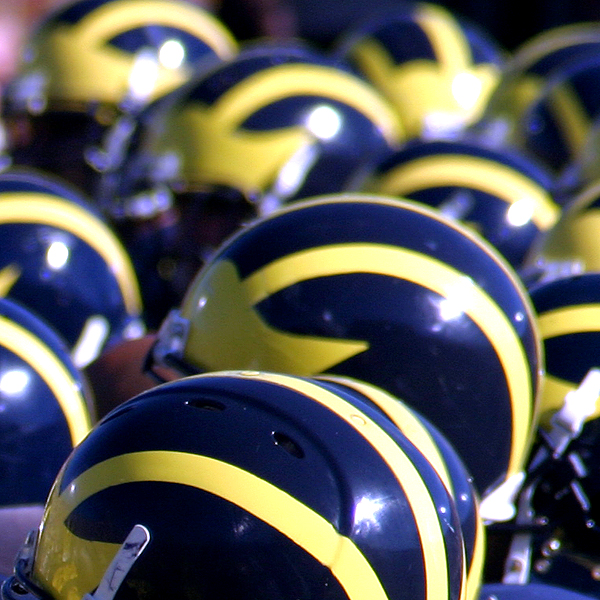We are eager in the U.S. to blame our leaders and hold them responsible for our dysfunction. I am now realizing that this often should not be the case. Or, to be honest, it should rarely be the case.
A friend reminded me in the spring as I spoke to him about some structural plans we had started implementing to help the congregation organize and create more accountability. He replied with what he called “an old engineer’s slogan”:
Culture eats structure for lunch.
No matter what I hoped to do or who I might recruit to lead the charge, change wasn’t going to happen in the congregation if the culture didn’t want it. We remember, then, that culture is not the sum of the individuals involved, but its own character in the story.
The culture is the primary motivator in the organization. And the culture likes to blame the leader for the culture’s problems.
The Michigan Example
I love my University of Michigan football team. Which is why the last seven years have been a great pain to me. And I have my preferences. I like the power running game and a 4-3 defense. I like lockdown corners and defensive lineman that can manhandle the opposing offensive line. That’s my favorite style of football. But I also like long passes and roving linebackers. I like speed and strength. I like quarterbacks who can scramble and I like running backs that can make opponents miss. I like football, not just my favorite style of football.
We like to blame the leader when the whole team fails. It isn’t fair, but it is consistent with the mantra from the business community. Leadership gurus make it all about the leader. Our wider culture’s fear of networked leadership has led to a rising interest in singular authority (notice the power of the culture on a wider scale?).
Michigan’s problem isn’t the leader. It isn’t the quality or the personality or the fit. Just look at Rich Rodriguez before he came to Michigan and after. It isn’t the leader that is dysfunctional. It isn’t the leader that has caused the problem. It isn’t the leader who is to be expected to fix it by himself.
Sometimes the problem isn’t the real problem.

Small Issues / Big Problems
The current issue with Michigan football is the same as it was last year: the offensive line. If we look at the team, we can see that the one unit that is failing to produce consistently is the offensive line. There are other weaknesses that are minor, and certainly wouldn’t be an issue if the team were 6-0 rather than 2-4. The line is producing few holes for running backs and giving too little protection for the quarterbacks.
Here’s the rub. There is a lot of talent on the offensive line. Lots of good recruits all along the line. It was bad last year when it was anchored by a couple of seniors (who both were drafted) and is bad this year. It is beginning to show some life, however.
All of the team’s problems on the field are fixed by better play by the offensive line. All of them. They have talent. The coaches are talented. And it is starting to come together. Sort of.
But the culture is eating the whole team alive. A close game against Minnesota turned into a blowout when the team was worn down. Not by a vastly superior Minnesota team (it isn’t), but by angry booing fans and the weight of ESPN’s constant nitpicking.
The culture is eating the structure.
Fixing the Culture
There are fixes, we just don’t like the honest ones. They involve working hard, forgiving, rooting even when we fail. They involve giving more than we receive, being patient, and living with great optimism. They involve building different expectations for success or different expectations for what we see as the Michigan Way. It means change. And Michigan fans don’t deal with change that well. In fact, Michigan is just like the church when it comes to tradition.
We’d rather catch lightning in the bottle. Blame it on the coach so that we can go get a new one. A new one about whom we can say This time is different.
Sure it is. It is always different. Anything that keeps us from looking in the mirror. Anything that acknowledges that we are the problem. We are the culture. And we are hungry. But must we insist on feasting on ourselves?

Leave a Reply